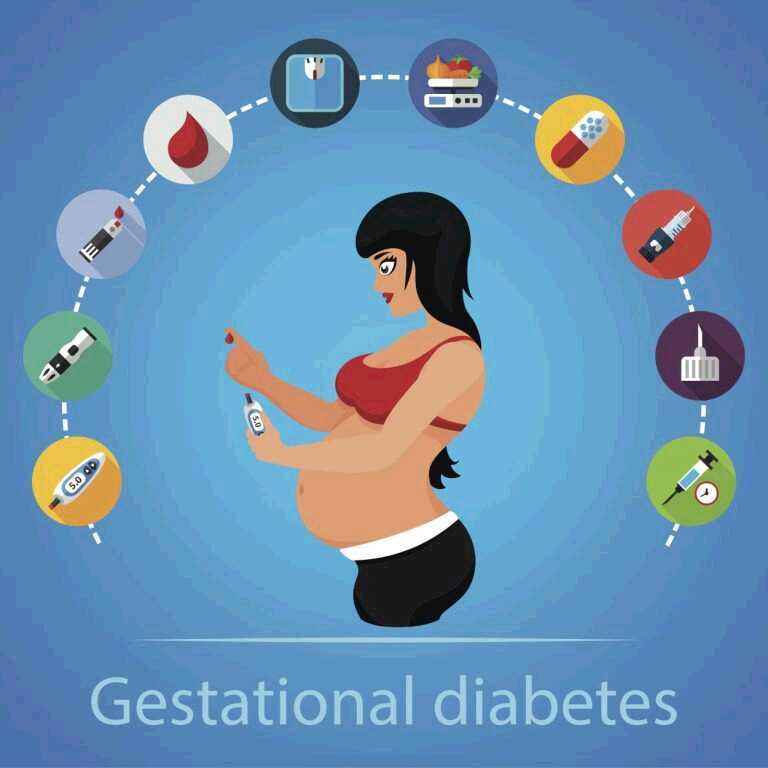
Gestational diabetes remains something of a mystery; although there are certain risk factors for developing gestational diabetes, such as being overweight, eating a diet high in sugar, and having family members who had the condition, there are still no definitive reasons as to why it develops.
This is particularly problematic because studies have shown a link between gestational diabetes and the onset of Type 2 diabetes.
Gestational Diabetes
Gestational diabetes is pregnancy-induced diabetes that typically strikes in either the 2nd or 3rd trimester. Although most cases can be managed with diet and don’t require the use of insulin, others can be severe. Whether an individual’s case is severe or mild, however, the effects remain the same: higher birth weights in children, increased weight gain and risk of birth complications for the mother, and the possibility for blood sugar imbalances in newborns.
 Gestational diabetes has also been linked to the onset of Type 2 diabetes in children, making it a condition that should be taken seriously and managed carefully. Monitoring and testing for mother and child may be recommended following birth, and continuing indefinitely, or until any possible symptoms have completely abated.
Gestational diabetes has also been linked to the onset of Type 2 diabetes in children, making it a condition that should be taken seriously and managed carefully. Monitoring and testing for mother and child may be recommended following birth, and continuing indefinitely, or until any possible symptoms have completely abated.
Gestational Diabetes and Type 2
Women who experience gestational diabetes have an increased risk of developing Type 2 within 5-10 years. Although 5-10 percent of women with gestational diabetes is diagnosed with Type 2 immediately following or closely following labor, 20-50 percent is diagnosed within the aforementioned 5-10 year window. This is important to note because many women are not familiar with the risks and return to a pre-diabetic lifestyle, which can further aggravate the possibility of having Type 2.
As with gestational diabetes, the best course of action is prevention; because women have  an increased risk of developing Type 2 diabetes, extra caution must be taken with regard to diet, exercise, and any unhealthy habits such as a sedentary lifestyle or smoking. Engaging in a regular exercise routine and eating a well-rounded, whole-foods diet will drastically reduce the risk of Type 2 diabetes in women with gestational diabetes.
an increased risk of developing Type 2 diabetes, extra caution must be taken with regard to diet, exercise, and any unhealthy habits such as a sedentary lifestyle or smoking. Engaging in a regular exercise routine and eating a well-rounded, whole-foods diet will drastically reduce the risk of Type 2 diabetes in women with gestational diabetes.
Continuing to monitor your blood sugar is also a great way to notice any unsettling trends or difficulties with your blood sugar. Identify any foods or even times of day that prove difficult and alter your habits accordingly.
Moving Forward
Women who have experienced gestational diabetes in one pregnancy are at a higher risk to have gestational diabetes in subsequent pregnancies and must take extra care when trying to conceive. Each subsequent case of gestational diabetes increases the risk of seeing Type 2 come on, so prevention and management are instrumental in keeping risk factors low, both for you and your children.
If you have experienced gestational diabetes in the past, discuss testing options with your doctor; most doctors recommend a check-up at 6 weeks postpartum and regular checks every 1-2 years to catch the onset of Type 2 quickly and minimize any potential complications.
ReferencesEveryday Health. Accessed 4/2/17.
ADA. Accessed 4/2/17.
Diabetes Forecast. Accessed 4/2/17.
